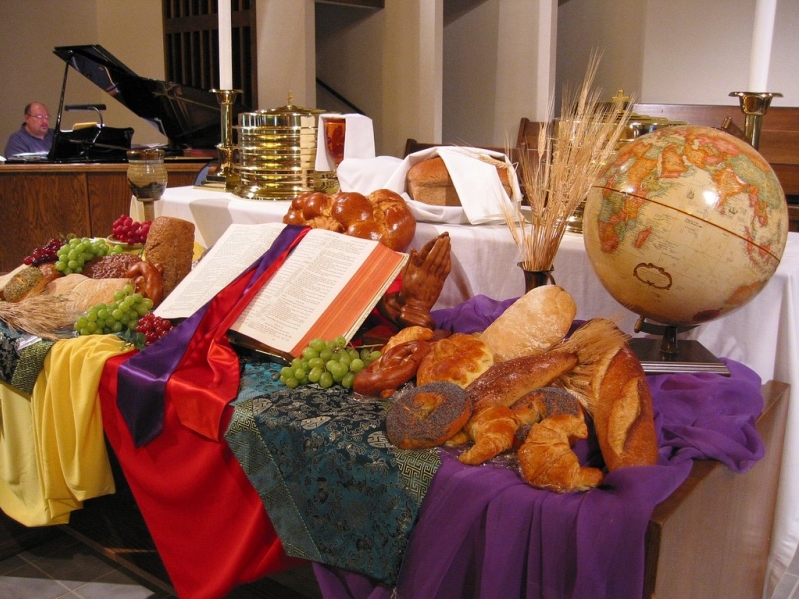
World Communion Sunday is celebrated by several Christian denominations with an offering during the first Sunday of October each year. It is a time about being in communion with Christians all over the world, who are pressing toward the goal of serving God in life-changing ministries.
Originally a Presbyterian observance, World-Wide Communion Sunday was established officially in 1940 by the Department of Evangelism of the Federal Council of Churches of Christ in America (now the National Council of Churches) as a global, interdenominational event. Prompted by the impact of World War II, the Methodist Church received an offering on this Sunday for the Fellowship of Suffering and Service.
The first celebration occurred at Shadyside Presbyterian Church in Pittsburgh, Pa., in 1933, where Hugh Thompson Kerr served as pastor. It was adopted as a denominational practice in the U.S. Presbyterian Church in 1936.
Kerr's younger son, the Rev. Donald Craig Kerr, said the concept spread very slowly at the start. "People did not give it a whole lot of thought. It was during the Second World War that the spirit caught hold, because we were trying to hold the world together. World Wide Communion symbolized the effort to hold things together, in a spiritual sense. It emphasized that we are one in the Spirit and the Gospel of Jesus Christ."
In 1971, The United Methodist Church changed the name of the observance to World Communion Sunday, and redistributed the offering to support the Crusade Scholarship Program (begun in 1944), the Ethnic Minority Scholarship Program and the Division of Chaplains and Related Ministries.
In 1980, Chaplains and Related Ministries was moved to World Service funding, but the World Communion Sunday offering continued to assist racial- and ethnic-minority students pursuing various avenues of ministry.
World Communion Sunday is one of the six church-wide Special Sundays of The United Methodist Church. Offering proceeds from this day go to students who receive scholarships studying in a variety of fields, such as family pastoral care, Christian-Muslim relations, clinical psychology, peace and governance, crop production, law, health and rural development.
These scholarships often go to international and U.S. graduate students seeking second careers in church-related vocations:
- Half of the offering provides Crusade Scholarships for international and U.S. racial- and ethnic-minority graduate students through the World Communion Scholarship Program. Crusade Scholars represent more than 25 countries.
- Thirty-five percent supports Ethnic Scholarships for undergraduate students.
- Fifteen percent funds Ethnic In-Service Training Program scholarships.






